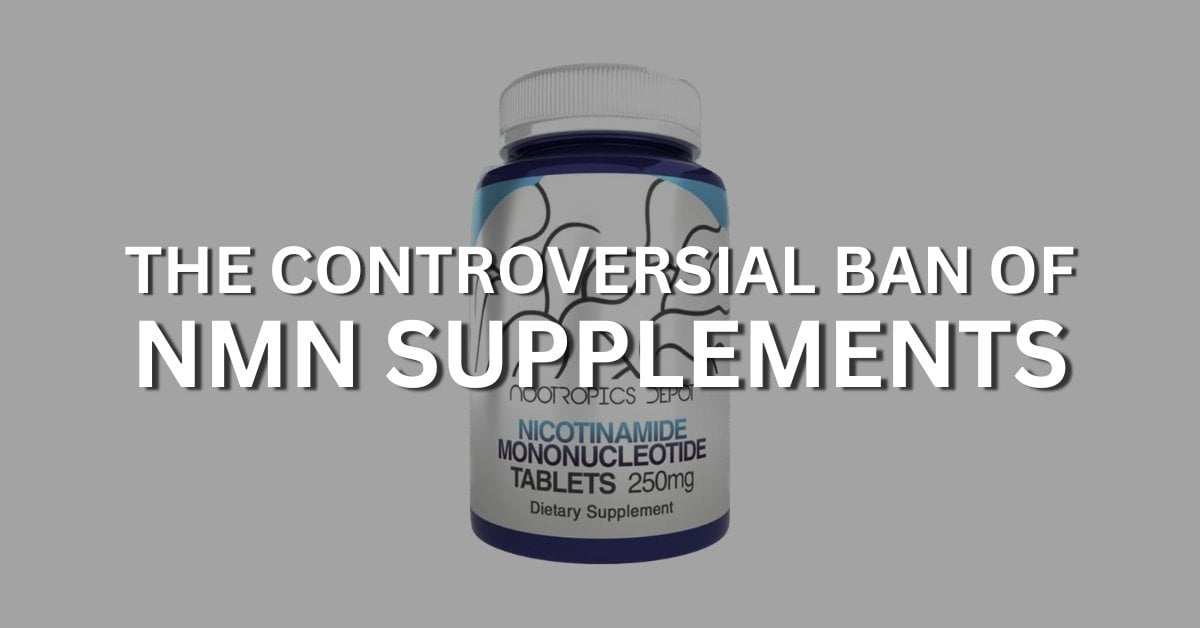Nicotinamide mononucleotide (NMN) has gained popularity in recent years due to its potential anti-aging and health-promoting effects. However, this dietary supplement has recently been banned in the United States, with major retailers like Amazon removing NMN supplements from their shelves. This action comes in response to directives from the U.S. Food and Drug Administration (FDA). In this blog post, we will explore the reasons behind this ban and delve into the science surrounding NMN supplementation.
The NMN Craze: Understanding the Science
NMN is a derivative of vitamin B3 (niacin) and is a precursor to nicotinamide adenine dinucleotide (NAD+), a coenzyme essential for various cellular processes, such as energy production, DNA repair, and cellular signaling. As we age, NAD+ levels naturally decline, leading to reduced cellular function and increased vulnerability to age-related diseases.
Research on NMN has shown promise in animal studies, demonstrating its potential in promoting health and slowing down the aging process. These studies have reported improved energy metabolism, enhanced DNA repair, and increased lifespan in rodents. However, it is important to note that the effects of NMN supplementation in humans have not been thoroughly researched, and the long-term safety of NMN use remains uncertain.
The FDA Steps In: A Closer Look at the Ban
In February 2023, the FDA took action against NMN supplements, citing concerns about the safety and efficacy of these products. The FDA’s decision is based on several factors, including:
- Lack of Human Trials: While NMN has shown promise in animal studies, there is a lack of substantial clinical trials in humans to support its safety and effectiveness. The FDA has expressed concerns that the potential risks of NMN supplementation may outweigh any potential benefits, especially given the limited data on long-term safety.
- Undefined Status: NMN has not been granted “Generally Recognized as Safe” (GRAS) status by the FDA, nor has it been classified as a “new dietary ingredient” (NDI). As a result, the FDA has determined that the sale of NMN supplements is unlawful until further regulatory clarification is provided.
- Manufacturing Concerns: The FDA has also raised concerns about the manufacturing practices of some NMN supplement manufacturers. These concerns include inadequate quality control measures, potential contamination risks, and inconsistencies in product labeling and claims.
The Consequences of the Ban
The FDA’s decision to crack down on NMN supplements has led to a significant impact on the industry. Major retailers, including Amazon, have removed NMN products from their offerings in compliance with the FDA’s directive. This ban has generated considerable controversy, with some arguing that the FDA’s actions are overreaching and impede consumer choice, while others maintain that the ban is necessary to protect public health.
What’s Next for NMN?
The future of NMN supplements remains uncertain. The FDA’s decision has spurred researchers and manufacturers to prioritize clinical trials and research to establish the safety and efficacy of NMN in humans. However, it remains to be seen whether the FDA will ultimately grant GRAS or NDI status to NMN, allowing for its legal sale as a dietary supplement.
Conclusion
The ban on NMN supplements in the United States has ignited a heated debate about the role of regulatory agencies in protecting public health and the rights of consumers to access potentially beneficial supplements. While the science behind NMN is promising, the lack of conclusive human trials and regulatory uncertainties have contributed to the FDA’s decision to ban these products. As research continues to explore the potential benefits of NMN supplementation, it is crucial for regulatory agencies, manufacturers, and consumers to prioritize safety and evidence-based practices.
In the meantime, individuals seeking to optimize their health and potentially slow down the aging process should focus on proven lifestyle interventions. These include maintaining a balanced diet, engaging in regular exercise, getting adequate sleep, and managing stress. While NMN supplements may eventually prove to be beneficial, it is essential to rely on established methods to support overall well-being.
As the story of NMN unfolds, it is essential to stay informed and up-to-date with the latest scientific findings and regulatory changes. The ban on NMN supplements serves as a reminder of the importance of rigorous research and responsible regulatory oversight to ensure the safety and efficacy of dietary supplements. Whether NMN will ultimately be deemed safe and effective for human use remains to be seen, but the ongoing debate will undoubtedly continue to shape the future of the supplement industry and consumer access to potentially beneficial products.


Awesome blog.